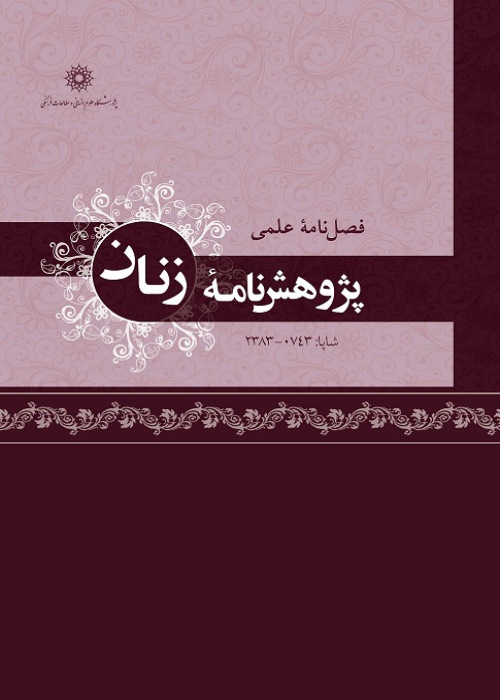The Elements of Anagram Influence in Islamic Culture and Its Effectson Depression of Women Position
Author(s):
Abstract:
Because of human beings lack of insight and his ignorance، the gender problem has created crises and disasters for contraries، as those of the race and nationality problems. Meanwhile، women faced contradictions and experienced a two-directional imbalance of extravagance and undersupply because of their exceptional، wise and different creation and their essential role all over the history. Sometimes they have been assumed as superhuman and raised to level of worshipping and sometimes they have been degraded to inhuman level and considered as a thing or a good. A survey on the religions history and the nations’ cultures shows that the women has never possessed a suitable position and her personality has been assumed out of human being caravan. Of course، the exception is Islam. Islam supported the woman’s rights and her human personality and provided her with equal position as men and finally created a revolution in human thought and the society’s culture of the time in this regard. After the great revolution of the Islam and its consequences، the woman faced an extraordinary change in her problems. However، when the Islam prophet died، a number of events and factors prevented the Islam’s fundamental movement toward realizing the woman’s legal and human position، including deviation of the ruling systems، encountering the domination of the Alavi thought، the rulers’ attempts to vanish the prophet’s speeches، banning to read the prophet’s speeches along with duplicating the false speeches، providing opportunities for story makers to propagate the Israelites in the Islamic Society، the Jew conspiracy and the unity of the Jew and Bani-Omayeh aiming at propagating the Israelites، lack of knowledge and wisdom to answer the time problems and facilitating the return of the Arabic bias and ignorance in problems related to the women، etc. In many religious texts we face subjects about women، which are not in conformity with the holy Quran verses، the Imams’ traditions and the reason. They are in urgent need of precise revision، in order to provide a real viewpoint of Islam about women position in the world. In the present paper، to analyze the role of Harem women in the reforms of Nasseri’s era، using the rational choice theory as one of the general theories in historical sociology، we described the reasons which these women offered as the cons of the reforms in three reformative period: 1848–1851 (the reforms of Mirza Taqi Khan Amir Kabir); 1859–1862 (the reforms of Nasser al-Din Shah); and 1871–1873 (the reforms of MirzaHossein Khan Sepahsalar). This paper criticized the dominant approach in historical narratives and the analysis that introduce harem women as sexual objects that were simply plaything of the courtiers، governors and clergymen by using their body for seducing. Focusing on two Naser al-Din Shah’s harem women، Mahd-e Olia (1805- 1873) andAnis al-Doleh (1842- 1896)، this paper emphasize on the rational choice of this actors and the reasons they are offered to criticize the reforms. This shows that their reasonings are not much different from the other groups who are known as the cons of reforms in Nasseri''s era
Keywords:
Language:
Persian
Published:
Pazuhesname - ye Zanan, Volume:3 Issue: 1, 2012
Pages:
23 to 47
magiran.com/p1201174
دانلود و مطالعه متن این مقاله با یکی از روشهای زیر امکان پذیر است:
اشتراک شخصی
با عضویت و پرداخت آنلاین حق اشتراک یکساله به مبلغ 1,390,000ريال میتوانید 70 عنوان مطلب دانلود کنید!
اشتراک سازمانی
به کتابخانه دانشگاه یا محل کار خود پیشنهاد کنید تا اشتراک سازمانی این پایگاه را برای دسترسی نامحدود همه کاربران به متن مطالب تهیه نمایند!
توجه!
- حق عضویت دریافتی صرف حمایت از نشریات عضو و نگهداری، تکمیل و توسعه مگیران میشود.
- پرداخت حق اشتراک و دانلود مقالات اجازه بازنشر آن در سایر رسانههای چاپی و دیجیتال را به کاربر نمیدهد.
In order to view content subscription is required
Personal subscription
Subscribe magiran.com for 70 € euros via PayPal and download 70 articles during a year.
Organization subscription
Please contact us to subscribe your university or library for unlimited access!


